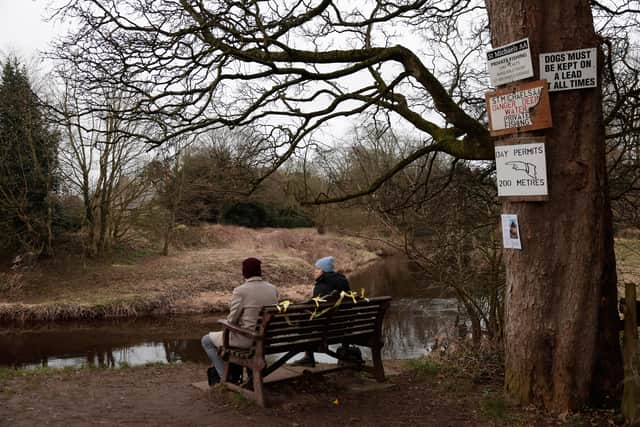Nicola Bulley inquest: understanding cold water shock and how it affects the body as inquest continues
and live on Freeview channel 276
The inquest into the death of Nicola Bulley has revealed that her cause of death was drowning after getting into difficulty falling into the River Wyre. Dr. Alison Armour, a Home Office pathologist, gave evidence that no harm came to Ms. Bulley before falling into the water, while Professor Michael Tipton, a world expert in drowning, believes that the 45 would have started drowning almost immediately upon entering the water.
The inquest, being held at the County Hall in Preston, also discussed how cold water shock could have led to the panic Ms. Bulley faced after falling into the one metre deep water, which at its deepest became four metres deep. “We estimate the temperature would have been around three to 5C (in the river) so there would be a particularly powerful cold-shock response,” Professor Tipton concluded.
Advertisement
Hide AdAdvertisement
Hide AdHe said Ms Armour’s finding of water in the stomach and lungs is consistent with a “gasp response” underwater, with liquid entering the body’s organs, which he said is seen in two-thirds of drowning victims. That theory was also agreed upon by cold water expert Dr. Patrick Morgan, who stated that “on the occasion that the individual has taken that initial gasp on the surface of the water and then gone below, the duration would be 10 seconds that you could hold your breath and very likely one or two seconds at best.”
The experts also disclosed that the reason Ms. Bulley was found a metre downriver from her initial disappearance at St Michael's on Wyre in Lancashire on January 27 2023 was due to the particularly strong downstream flow found in that stretch of the Wyre, estimated that the body would have floated “a metre a second”, according to PC Matthew Thackray.
The inquest is set to continue this week, with particular regard now as to how the police and media reported the event back in January, including numerous allegations of the state of mind that Ms. Bulley may have been in.
What is ‘cold water shock’
Cold water shock refers to the physiological and psychological responses that occur when a person suddenly enters cold water. It is a natural reaction of the body to the rapid change in temperature, particularly when the water is colder than the body's normal temperature. Cold water shock can be experienced in various water environments, including oceans, lakes, rivers, and swimming pools.
Advertisement
Hide AdAdvertisement
Hide Ad

The primary effects of cold water shock include an involuntary gasp reflex, hyperventilation, and an increased heart rate. These reactions can lead to disorientation, impaired breathing, and loss of muscle control. The shock of cold water can also cause a sudden increase in blood pressure, which may be particularly dangerous for individuals with pre-existing cardiovascular conditions.
The body’s natural temperature is usually around the 37c mark though, and as anyone knows, getting into a particularly cold area of water is sometimes a slow process to acclimatise to the temperature.
In the case of Nicola Bulley, falling into the river meant that her body was immediately plunged to freezing temperatures, leading to the body’s response to those temperatures making it difficult to swim and stay afloat.
The initial shock can cause panic and disorientation, impairing a person's ability to make rational decisions and effectively respond to the situation, which is what the inquest ultimately believed happened to her.
Comment Guidelines
National World encourages reader discussion on our stories. User feedback, insights and back-and-forth exchanges add a rich layer of context to reporting. Please review our Community Guidelines before commenting.
